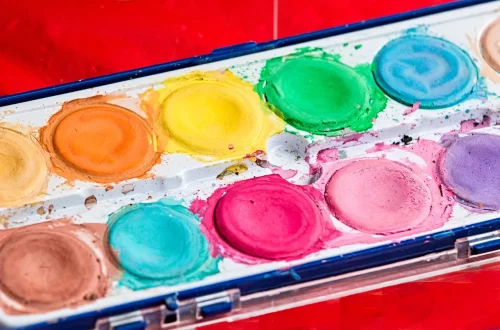
The Ultimate Guide to Caring for Your Black Mini Labradoodle
Caring for a black Mini Labradoodle is both a rewarding and fulfilling experience, as these dogs are known for their friendly personalities and intelligence. As a hybrid breed, they combine the best traits of their parent breeds – the Labrador Retriever and the Poodle. Their stunning black coats and playful demeanor make them beloved companions for families and individuals alike. However, owning a Mini Labradoodle comes with its own set of responsibilities and challenges.
Understanding their unique needs is crucial for ensuring a healthy and happy life for your furry friend. This breed is particularly known for its hypoallergenic coat, making them suitable for families with allergies. Yet, this also means that grooming and maintenance play a significant role in their care routine. Additionally, proper training and socialization are essential for their development, as Mini Labradoodles are eager to please but can also exhibit stubborn behaviors if not guided correctly.
By investing time and effort into understanding your Mini Labradoodle’s needs, you can foster a strong bond and provide a nurturing environment that allows them to thrive. From regular exercise to mental stimulation, each aspect of their care contributes to their overall well-being. As you embark on this journey, you will discover that the love and joy your black Mini Labradoodle brings into your life far outweighs the challenges.
Grooming Your Black Mini Labradoodle
Grooming is one of the most important aspects of caring for a black Mini Labradoodle. Their curly, hypoallergenic coat requires regular maintenance to keep it looking its best and to minimize shedding. While some may assume that the coat is low-maintenance, it actually requires a dedicated grooming routine to prevent matting and tangling.
Begin by brushing your Mini Labradoodle at least two to three times a week. Use a slicker brush or a comb designed for curly coats to effectively remove loose hair and debris. This routine not only keeps their coat healthy but also strengthens the bond between you and your pet. During shedding seasons, you may need to increase the frequency of brushing to accommodate the increased hair loss.
Bathing your dog is another essential part of their grooming routine. Aim for a bath every six to eight weeks, but avoid over-bathing as it can strip the coat of its natural oils. Use a gentle, dog-specific shampoo to maintain the coat’s health and prevent skin issues. After bathing, ensure thorough rinsing to eliminate any residue that could irritate their skin.
Regular nail trimming is also a critical component of grooming. Long nails can cause discomfort and lead to mobility issues for your Mini Labradoodle. Aim to trim their nails every couple of weeks, and always use specialized dog nail clippers to avoid injury. If you’re unsure, consider consulting a professional groomer for assistance.
Finally, don’t forget about dental care. Regular tooth brushing and dental chews can help prevent dental issues that are common in small breeds. Maintaining your Mini Labradoodle’s dental health is an often-overlooked aspect of their overall care, but it is crucial for their long-term well-being.
Nutrition and Diet for Optimal Health
Feeding your black Mini Labradoodle a balanced and nutritious diet is vital for their overall health and longevity. The right diet can help prevent obesity and related health issues, ensuring that your pet remains active and happy. It’s essential to choose high-quality dog food that meets their specific nutritional needs, considering their age, weight, and activity level.
When selecting food, look for options that list meat as the first ingredient and contain a good balance of proteins, fats, and carbohydrates. Mini Labradoodles are active dogs, so they require a diet rich in protein to support their energy levels. Additionally, essential fatty acids are important for maintaining a healthy coat and skin.
Portion control is also a critical aspect of feeding. Mini Labradoodles can be prone to obesity if their calorie intake is not monitored. Follow the feeding guidelines provided on the dog food packaging, but adjust portions based on your dog’s activity level and body condition. Regularly assess your dog’s weight, and consult with your veterinarian if you have concerns about their diet or weight.
Consider incorporating fresh fruits and vegetables into their diet as healthy treats. Foods such as carrots, apples, and blueberries can provide essential nutrients while also serving as low-calorie snacks. However, always research which foods are safe for dogs, as some human foods can be toxic to pets.
Lastly, ensure that fresh water is available at all times. Hydration is crucial for your Mini Labradoodle’s overall health. Regularly clean their water bowl to prevent bacteria buildup, and consider providing a water fountain to encourage drinking, especially in warmer months.
Training and Socialization for a Well-Behaved Companion
Training and socialization are essential for raising a well-behaved black Mini Labradoodle. These intelligent dogs thrive on mental stimulation and positive reinforcement. Starting training early in your dog’s life will help establish good habits and behaviors that will last a lifetime.
Begin with basic obedience commands such as sit, stay, come, and down. Use positive reinforcement techniques, such as treats and praise, to encourage good behavior. Keep training sessions short and engaging, as Mini Labradoodles can become bored if sessions are too long. Aim for consistency in commands and expectations, as this will help your dog understand what you want from them.
Socialization is equally important and should begin early. Expose your Mini Labradoodle to various people, environments, and other animals to help them develop confidence and adaptability. Positive experiences during their critical developmental stages will shape their behavior as they grow. Consider enrolling them in puppy socialization classes or dog training courses, which can also provide valuable learning opportunities for you as an owner.
As they mature, continue to challenge your Mini Labradoodle with advanced training techniques and activities. Engaging in dog sports, such as agility or obedience competitions, can provide mental and physical exercise while strengthening your bond.
Remember that patience is key when training your dog. Every dog learns at their own pace, and it’s important to celebrate small victories along the way. If you encounter challenges, don’t hesitate to seek help from a professional dog trainer who can provide guidance tailored to your Mini Labradoodle’s unique personality and needs.
In conclusion, caring for your black Mini Labradoodle involves a commitment to grooming, nutrition, and training. By dedicating time and effort to these areas, you can ensure a happy and healthy life for your furry companion.
**Disclaimer: This article is not intended as medical advice. For any health concerns regarding your pet, please consult a qualified veterinarian.**




